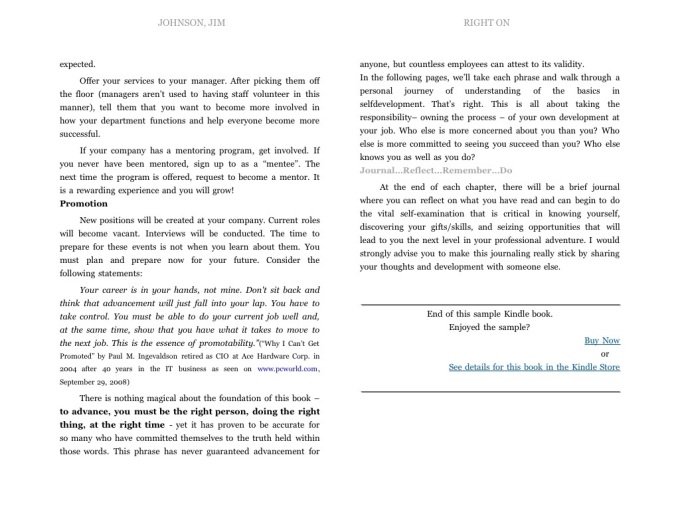Let’s get into the first circle and look at the sometimes uncomfortable idea of “who I think I am.” If you were a brand (and you are), this would be your brand promise, dream, potential. I could easily title this circle “who I wish to become.” What experiences did you have to get you to where you are today? I’m not going to turn this into some cheap pseudo-counseling session. I’m not licensed (or that patient).
How do you get to know the real you?
- Appropriate, healthy self-talk. There are plenty of articles and books written on this subject. What we tell ourselves can make or break a day at the office, a relationship with our spouse and kids, as well as what we can or cannot accomplish. Want a healthier you (on the inside)? Be sure to feed your mind positive ideas and directions to you! Too many times, we beat ourselves up well before anyone else.
- Journal. Take time weekly (daily?) to journal your thoughts and experiences. This is a conversation with yourself. What may have been a bad interaction shows up in a new light when you’re journaling about it later. Perspective is a wonder thing, and journaling can provide a good dose of it.
- Have a trusted friend/advisor/mentor. Find someone you can be honest with and who will be honest with you. Spend enough time with them so they get to know the real you. Allow them to ask you the difficult questions. If they begin to manipulate the relationship, dump them. You need someone who you can confide in as well as who will not baby you.
Do you want to be more friendly at work? How much do you smile and make eye contact with co-workers? Do you eat lunch with co-workers or do you hunker down in your office alone?
Do you wish you could be more innovative on the job? Read. Listen. Interact. Innovation and creativity isn’t granted by some fairy god-manager. Exposure to new ideas will expand your mind and your world.
Do you want to be known as a giver, encourager, builder of people, achiever? Are you doing anything today that would result in this in your life?
If you want to know who you are, you have to take the responsibility to develop you. Don’t wait for your HR department to do it. Don’t wait on your boss. YOU need to develop YOU. Some simple things to get you on the road to development:
- Read: articles, magazines, white papers, phone/tablet apps. I find great value in Flipboard and Zite. I expose myself to all kinds of new ideas daily through these free apps.
- Learn: take advantage of seminars, conventions, others in your company. Learn something new every week. Journal about it (that will help reinforce it into your life).
- Share: share what you are learning. Share articles and books. Share what you’ve learned from someone else.
The next post will focus on what I say and do – your personal brand in action.
Thanks for reading this today!









